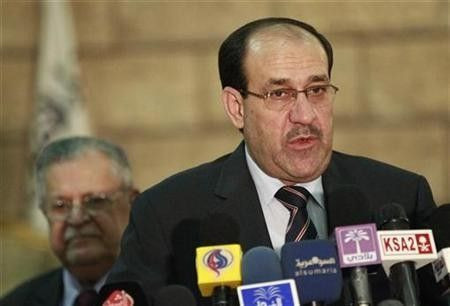Chevron approached Iran to develop oil project: WikiLeaks

Chevron Corp. (NYSE: CVX) negotiated with the Iranian government about developing Iraq-Iran cross-border oilfield, in direct violation of U.S. sanctions against Teheran, according to Iraqi Prime Minister Nouri al-Maliki in diplomatic cables leaked by WikiLeaks.
The U.S. government has maintained a strict sanction policy against Iran in an effort to stop Iran’s alleged nuclear weapons program.
The cable in question dates from March 2009 and tracks a conversation between Maliki and Patricia Butenis, the then US charge d'affaires in Iraq.
With regard to hydrocarbons, the [Prime Minister] asked for the US position on direct contracts with US firms and on US firms developing cross-border fields on the Iran border, she said on the cable.
The [Prime Minister] said he is currently in negotiations with Chevron to develop various oilfields to include a cross-border oilfield with Iran. The [Prime Minister] claimed that Chevron had told him that it had already raised the issue of a cross-border development with Tehran as well.”
The oilfield was not identified, but according to the cable, Maliki asked about the political feasibility of such a deal involving a US firm working both sides of a cross-border field, given current [United States government] policies toward Iran.
Butenis responded that while U.S. sanctions would be in force, the-then new Obama administration was reviewing its policies on Iran.
[Prime Minister] al-Maliki said that he prefers to go with Chevron on the deal; however, he remarked that if US rules prevent Chevron from doing this project, he would approach a non-American firm, Butenis noted in the cable.
The U.S. has pressured a number of foreign oil companies, including Total S.A. (NYSE: TOT) of France and Royal Dutch Shell PLC (NYSE: RDS-A), to diminish their activities in Iran.
Chevron has denied the allegations spelled out in the cables.
Chevron acts in full compliance with US law. We have not engaged in business discussions that are, or could potentially be, in violation of US law. Any suggestion to the contrary is false, said a company spokesman.
Iraqi Oil Ministry spokesman Assem Jihad responded to the charges that no oil deal was signed with Chevron.
Meanwhile, a spokeswoman for the U.S. Treasury, which runs the sanctions against Iran, confirmed that US persons may not trade in Iranian oil or petroleum products refined in Iran, nor may they finance such trading. Similarly, US persons may not perform services, including financing services, or supply goods or technology that would benefit the Iranian oil industry.
A previous WikiLeaks document revealed that Chevron officials informed the U.S. embassy in Caracas Venezuela that an Iranian oil company Petropars requested Chevron’s assistance in certifying certain petroleum reserves in Venezuela.
© Copyright IBTimes 2024. All rights reserved.





















